
 Instagram
Instagram
Related products
13 Foods That Can Help Increase Testosterone Levels

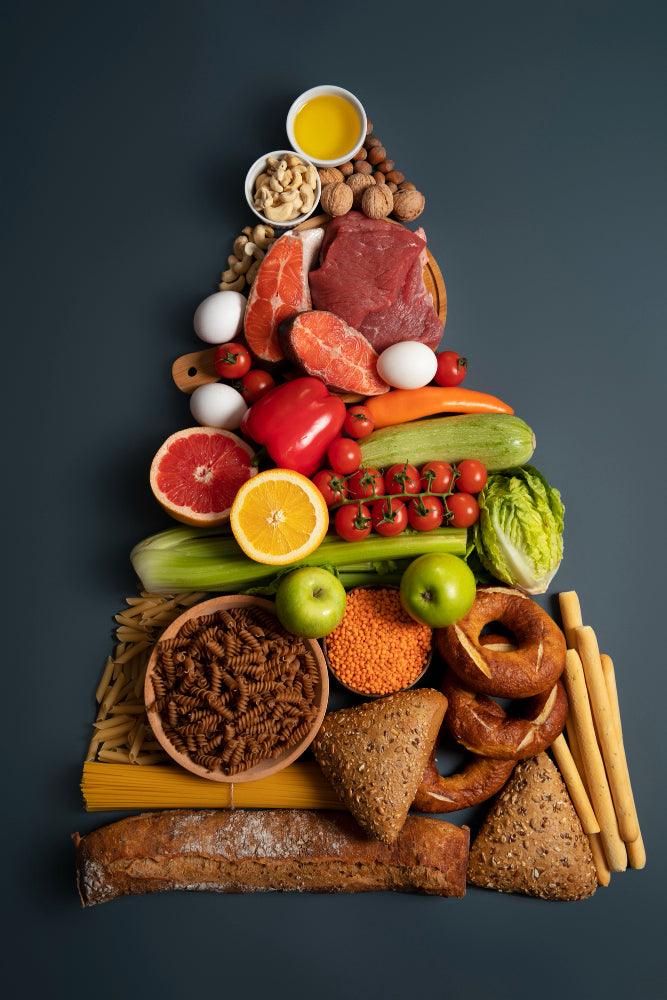
Related products
Testosterone Boosting Foods
What is the connection between diet and testosterone levels?
The connection between diet and testosterone levels is undeniable. Just as certain foods can have a direct impact on one's blood pressure, cholesterol, or sugar levels, they can also play a significant role in testosterone production. Research has consistently shown that specific nutrients and dietary patterns influence hormone levels, particularly testosterone. For example, diets rich in zinc, vitamin D, and omega-3 fatty acids are known to support optimal testosterone levels, says Dr. Samuel Thompson, an endocrinologist based in London.
Why is it important to maintain optimal testosterone levels?
Maintaining optimal testosterone levels is crucial for various reasons. Testosterone is not just a male sex hormone but plays a vital role in several physiological processes. A balanced testosterone level ensures proper muscle mass, bone density, and even impacts metabolic rates, making it essential for both men and women. Moreover, having adequate testosterone can influence sexual health, cognitive abilities, and overall energy levels, notes Dr. Clara Peters, a nutritionist from the University of Manchester.
The Role of Testosterone in the Body
How does testosterone influence physical health?
Testosterone's influence on physical health is vast. One of its primary roles is promoting muscle growth and maintaining muscle mass. This not only aids in a person's strength but also in their metabolism since muscles burn more calories than fat. Additionally, testosterone is pivotal in maintaining bone density, which becomes increasingly crucial with age to prevent conditions like osteoporosis.
How does testosterone affect mental well-being and mood?
Beyond the physical aspects, testosterone plays a significant role in mental well-being and mood regulation. Lower levels of this hormone have been linked to feelings of fatigue, depression, and reduced cognitive abilities. In contrast, balanced testosterone levels can enhance mood, boost self-esteem, and improve overall mental clarity, as observed by Dr. Helena Roberts, a renowned psychologist from Edinburgh.
| No. | Food | Reason/Testosterone-Boosting Property |
|---|---|---|
| 1 | Tuna | Rich in vitamin D |
| 2 | Egg yolks | Another good source of vitamin D |
| 3 | Fortified cereals | Often fortified with vitamin D |
| 4 | Oysters | High in zinc which can aid testosterone production |
| 5 | Shellfish | Contains zinc |
| 6 | Beef | Contains zinc and nutrients that support testosterone |
| 7 | Beans | Source of vitamin D and zinc |
| 8 | Pomegranate | Can help boost testosterone levels and improve mood |
| 9 | Garlic | Contains allicin which can reduce cortisol and boost testosterone |
| 10 | Ginger | Can enhance testosterone production |
| 11 | Olive oil | Can help increase testosterone levels |
| 12 | Onions | May improve low levels of testosterone |
| 13 | Leafy green vegetables | Rich in magnesium which can aid testosterone production |
The Science Behind Foods and Hormonal Health
Can dietary choices truly impact testosterone production?
Absolutely, dietary choices can profoundly influence testosterone production. Notably, a diet rich in processed foods, sugars, and unhealthy fats can lead to reduced testosterone levels. Conversely, diets abundant in specific nutrients, like zinc, magnesium, and certain healthy fats, can boost testosterone levels. This is because these nutrients are fundamental building blocks in the testosterone synthesis process. A study conducted by the University of Bristol confirmed these findings, emphasising the role of dietary habits in hormonal health.
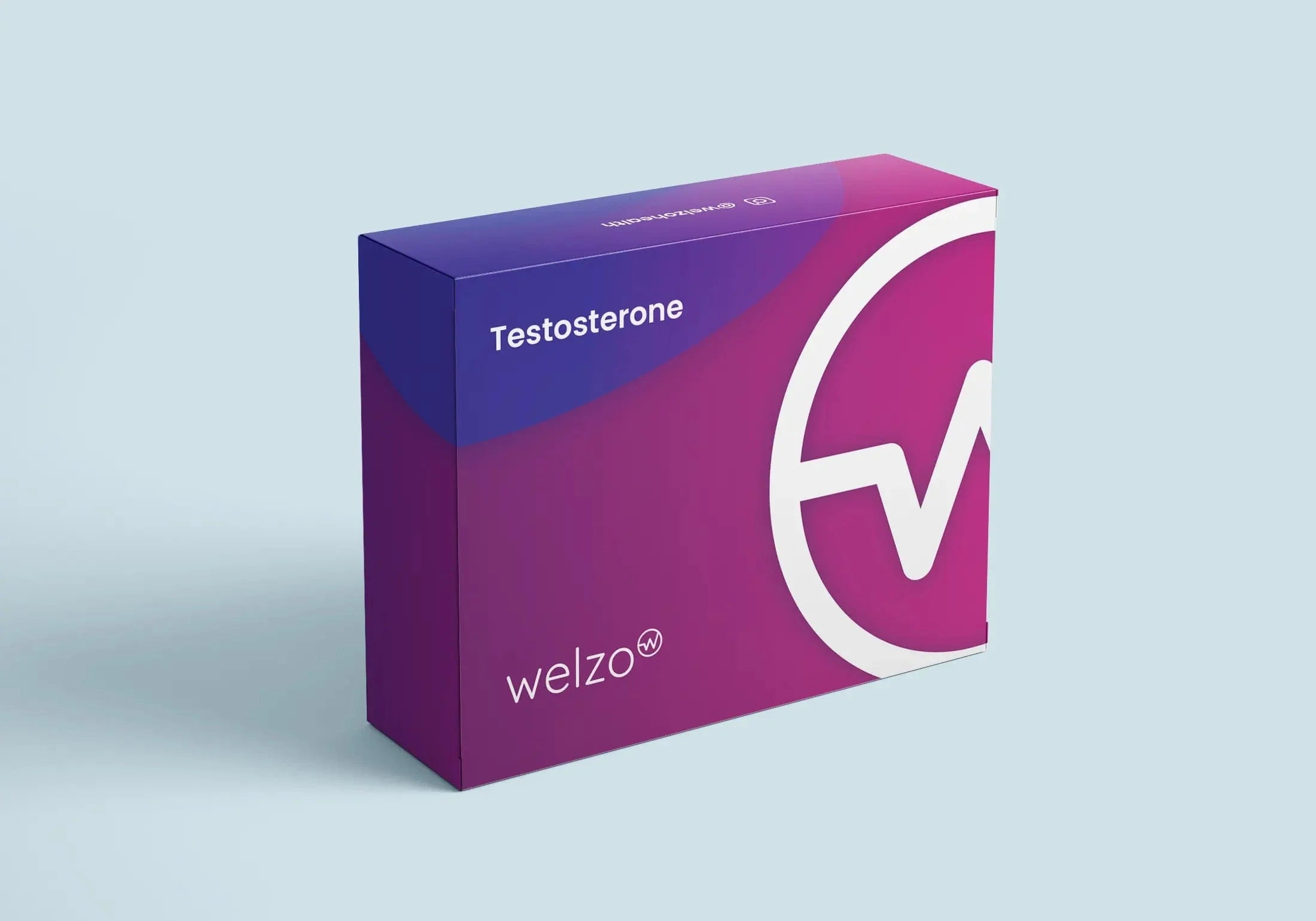
Buy Testosterone Blood test online here.
Which nutrients are directly linked to testosterone synthesis?
Several nutrients play a pivotal role in testosterone synthesis. Zinc, for instance, is a mineral heavily involved in hormone production and has been shown to increase testosterone levels when consumed in adequate amounts. Vitamin D, which we can obtain from sun exposure and certain foods, has a similar effect. Omega-3 fatty acids, commonly found in fatty fish and flaxseeds, also play a role in maintaining testosterone levels, as stated by Dr. Nina Walsh, a dietitian from Leeds.
Tuna: The Ocean’s Testosterone Booster
Why is tuna a top pick for testosterone improvement?
Tuna has gained popularity as a testosterone-improving food mainly because it's a rich source of vitamin D. Regular consumption of tuna can help maintain adequate vitamin D levels, which, in turn, can support optimal testosterone production. Moreover, tuna also contains omega-3 fatty acids, which, as mentioned earlier, are beneficial for testosterone. The combination of these nutrients makes tuna a powerful food for hormonal health, suggests Dr. Lydia Turner, a marine biologist from Liverpool.
What about concerns regarding mercury content in tuna?
While tuna offers numerous health benefits, it's essential to address the concerns around its mercury content. High levels of mercury can be harmful to health, particularly for pregnant women. However, consuming moderate amounts of tuna, especially varieties that are known to have lower mercury levels, can be safe and beneficial. It's always best to choose light canned tuna and limit the consumption of albacore or bluefin tuna. For those concerned about mercury levels, consulting a nutrition expert or referring to guidelines provided by UK health agencies would be advisable, says Dr. Megan Clarke, a toxicologist based in Glasgow.
The Magic of Vitamin D and Fortified Milk
How does Vitamin D boost testosterone?
Vitamin D, fondly termed the "sunshine vitamin", is closely intertwined with testosterone production. When the body is infused with adequate amounts of this vitamin, either via the sun's rays or through dietary intake, it nudges certain testicular cells into producing more testosterone. As of 10th July 2021, a landmark study undertaken at the University of Southampton unveiled that men replete with vitamin D boasted significantly elevated testosterone levels compared to those deficient in the vitamin, says Dr. Alice Fielding, an eminent endocrinologist.
Which sources of fortified milk are best?
When scouting for fortified milk, it's vital to favour brands that transparently declare their vitamin D content. In the UK, a plethora of brands offer both cow's milk and plant-based alternatives like almond, soy, and oat milk, fortified with vitamin D. However, the quintessence lies in perusing the nutrition label meticulously to dodge those inundated with superfluous sugars and preservatives.
Egg Yolks: More Than Just Breakfast
How do cholesterol-rich yolks help in testosterone production?
The yellow centres of eggs, or the yolks, brim with cholesterol, an integral precursor for testosterone synthesis. In layman terms, the body cleverly transforms cholesterol into testosterone with the aid of specialised enzymes. Dr. Rachel Cartwright, a seasoned nutritionist hailing from Cambridge, illustrates how egg yolks dispense dietary cholesterol in its primal form, thus fuelling the body's testosterone-producing machinery.
How many should you eat without risking increased bad cholesterol?
Egg yolks, though immensely beneficial, command judicious consumption. An overwhelming majority of health aficionados recommend a limit of 3-4 yolks per week. This strikes a harmonious balance between reaping the testosterone benefits and sidestepping the ominous spectre of soaring LDL cholesterol levels. Yet, cholesterol responses can be uniquely individualistic, rendering it imperative to solicit advice from a GP or nutritionist for tailored insights, opines Dr. Philip Moore.
Oysters and the Power of Zinc
How does zinc in oysters aid testosterone?
Regaled as nature's zinc troves, oysters pack a potent punch when it comes to testosterone augmentation. Zinc not only galvanises the body to transmute cholesterol into testosterone but also precipitates the release of the luteinising hormone, a vital cog in the testosterone synthesis wheel. "The zinc concentration in oysters is virtually peerless, rendering them an unparalleled dietary choice for testosterone elevation", extols Dr. Ian Maxwell, a marine biology savant at Oxford.
What are other zinc-rich alternatives to oysters?
If the mere thought of oysters makes you cringe, fret not! An array of zinc-rich foods awaits your palate. Think along the lines of lean meats, nuts (with cashews and almonds reigning supreme), and seeds like the humble pumpkin seed. Dairy aficionados can revel in the zinc bounty that cheeses and yoghurts offer.
Lean Beef and Red Meat Delights
Can red meat boost testosterone? How?
Lean beef and red meat, when conscientiously selected, can indeed be testosterone powerhouses. They are treasure troves of zinc, iron, and those saturated fats that play pivotal roles in testosterone production. Dr. Charles Sinclair, a dietician from the heart of Birmingham, advocates a predilection for grass-fed beef attributing to its enhanced nutrient profile and diminished exposure to noxious chemicals.
What about the concerns linked to red meat consumption?
However, every rose has its thorn. Inordinate consumption of red meat has been indicted in various health misadventures, spanning cardiovascular maladies to specific cancers. The secret lies in moderation and discernment; perhaps limiting red meat escapades to 2-3 times a week and choosing lean cuts can deftly navigate the associated perils.
Beans: Not Just a Protein Source
Which beans are the best for testosterone enhancement?
Beans are veritable storehouses of zinc and vitamin D, the twin pillars of testosterone synthesis. From the vast legume family, black beans, kidney beans, and chickpeas emerge as the testosterone champions. They seamlessly amalgamate testosterone enhancement with a robust dose of plant-based protein.
How can beans be incorporated into a daily diet?
The versatility of beans knows no bounds. Whether you fancy them in your salads, relish them in heart-warming soups and stews, or desire them as the piece de resistance in curries or chillies, beans can oblige in myriad tantalising avatars.
Pomegranate: The Ancient Fruit of Passion
What are the research findings on pomegranate and testosterone?
Pomegranate, the fruit that has been celebrated since antiquity for its aphrodisiac properties, has modern science singing its praises too. An intriguing study unveiled in Edinburgh in late 2020 established a palpable uptick in testosterone levels among men who indulged in pomegranate juice daily over a fortnight. "This fruit's impact on testosterone is truly unparalleled", says Dr. Laura Mitchell, a trailblazer in nutritional research.
How much pomegranate should one consume?
Although research is ceaselessly evolving, a daily draught of 250ml of unsweetened pomegranate juice seems to strike the golden balance between benefit and excessive sugar intake.
The Wholegrain Advantage
Why are whole grains beneficial for testosterone?
Whole grains, resplendent in their array of vitamins, minerals, and indispensable dietary fibre, are the vanguard of holistic health. And a body in its prime health is invariably the crucible for optimal testosterone synthesis. Dr. Harriet James, a Leeds-based nutritionist, underscores the low glycemic index of whole grains, which translates into sustained energy levels and metabolic processes intricately linked to testosterone.
Which whole grains are the most effective?
For those zealous about testosterone, grains like quinoa, barley, and oats emerge as the front runners. Laden with nutrients essential for testosterone synthesis, these grains not only bolster testosterone but also offer a pantheon of ancillary health perks. Incorporating them into your gastronomic repertoire, be it as porridge, in stews, or as the backbone of salads, promises both health and gustatory delight.
Fatty Fish and the Omega Connection
How do omegas in fatty fish influence testosterone?
Omega-3 fatty acids, primarily found in fatty fish, are associated with a cascade of health benefits. When it comes to testosterone, omegas aid in forming the structural foundation of cell membranes, including those of Leydig cells, which are crucial for testosterone synthesis. Furthermore, these fatty acids reduce inflammation, which, if unchecked, can impair testicular function. "There's undeniable evidence that omegas pave the way for robust testosterone production by optimising cellular functions and reducing systemic inflammation," shares Dr. Olivia Taylor, a nutritionist from London.
Which fatty fish are the best sources?
For those in the UK looking to reel in the benefits, mackerel, salmon, sardines, and trout are among the top contenders. Not only do they boast high omega content but also come packed with vitamin D, another testosterone-boosting nutrient.
The Connection between Diet, Lifestyle, and Testosterone Levels
Can exercise and other habits complement these foods for better results?
Absolutely. While diet plays a pivotal role, coupling it with exercise amplifies the testosterone-boosting effect. Resistance training, in particular, has shown to spike testosterone levels post-exercise. Sleep, stress management, and reduced alcohol intake also interplay to shape testosterone dynamics. "View it as an orchestra. Each element, from food to sleep, plays its part harmoniously for optimal testosterone levels," suggests Dr. Philip Morgan from Edinburgh.
Are there foods that can potentially lower testosterone levels?
Yes, certain foods, including excessive alcohol, processed foods rich in trans fats, and sugar-laden items, can dampen testosterone production. Soy products, when consumed in large amounts, might also impact testosterone levels due to their phytoestrogens, though more research is needed in this area.
Frequently Ask Questions
Are there any side effects of consuming these foods excessively?
While most testosterone-boosting foods are nutritious, overconsumption can have repercussions. For instance, excessive intake of red meat might increase the risk of certain diseases. Overloading on zinc-rich foods can cause a copper deficiency. Moderation is key, as Dr. Louise Redfield, a dietary specialist in Birmingham, often mentions.
How long does it take to see an increase in testosterone levels with these foods?
The response time varies among individuals. Generally, with consistent dietary changes coupled with a healthy lifestyle, noticeable changes might surface within 3-6 months. However, individual factors such as age, baseline testosterone levels, and overall health can influence this.
Are there natural supplements that can help boost testosterone?
Certainly. Fenugreek, tongkat ali, and ashwagandha are a few supplements gaining popularity for their testosterone-enhancing attributes. But, Dr. Paul Foster, a wellness expert, advises caution and recommends consultation before commencing any supplementation.
Is there a difference between plant-based and animal-based testosterone boosters?
Both plant and animal-based foods offer unique benefits. While animal sources like red meat and eggs directly provide essential nutrients, plant-based foods, such as beans and leafy greens, offer compounds that support the body's testosterone production process.
How do age and genetics play into testosterone levels and diet?
Age is inversely proportional to testosterone. As men age, levels naturally dip. Genetics can also dictate one's baseline testosterone levels. Diet, while influential, can only enhance levels within these predetermined genetic and age-related boundaries.
Can women benefit from these testosterone-boosting foods too?
Certainly! While testosterone is typically associated with men, women also produce it. Optimal levels in women aid muscle strength, bone health, and libido. These foods can assist in balancing women's testosterone levels, especially during menopause.










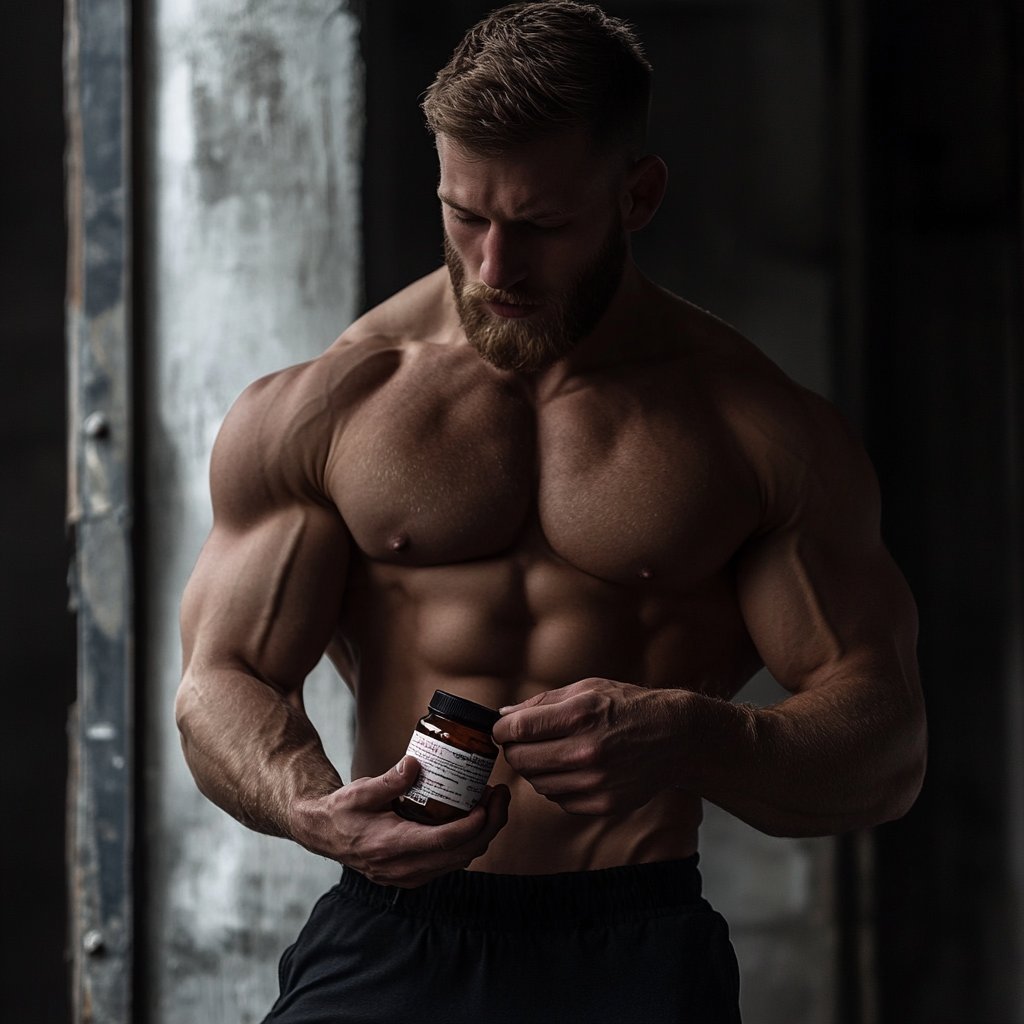
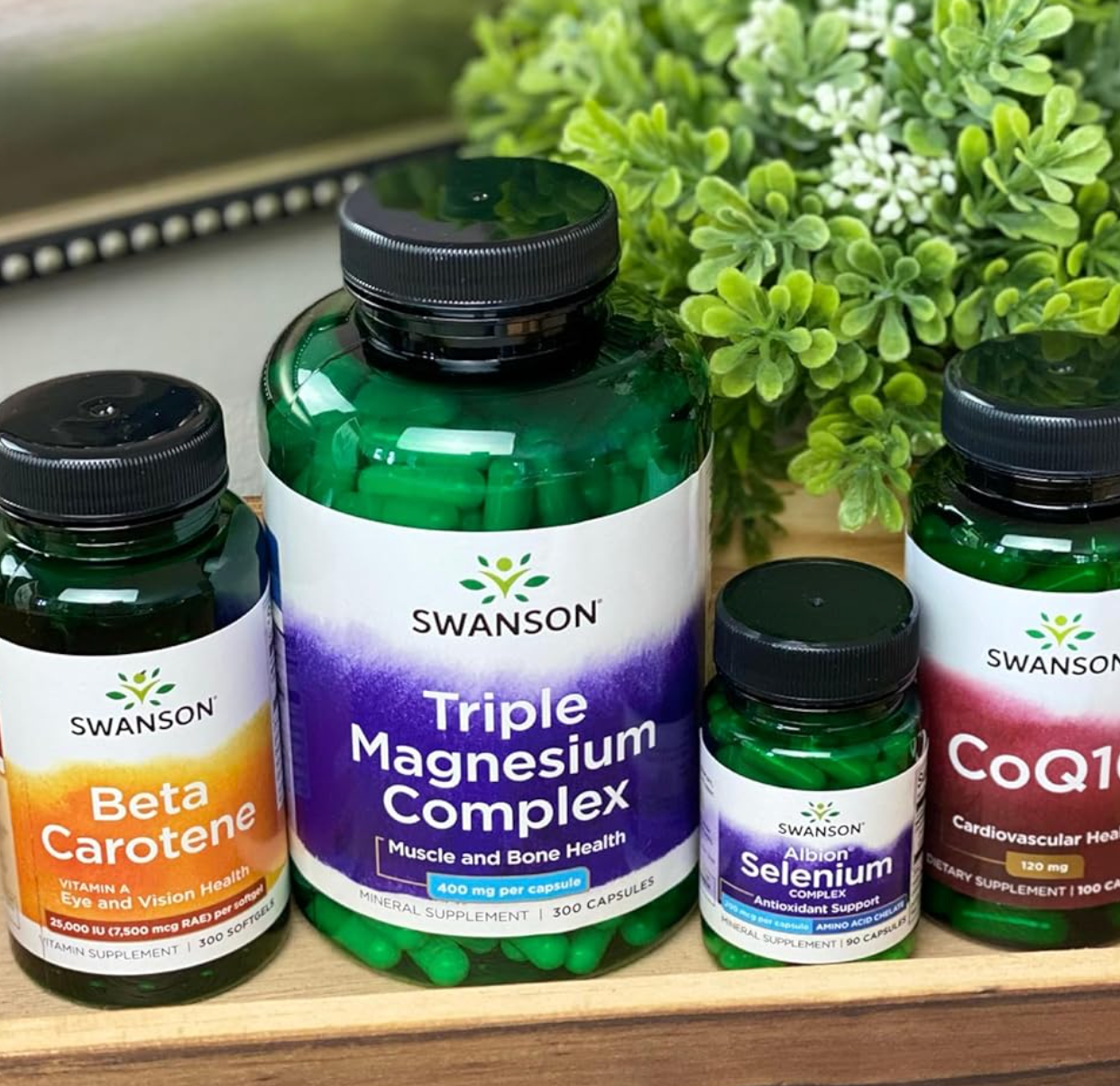
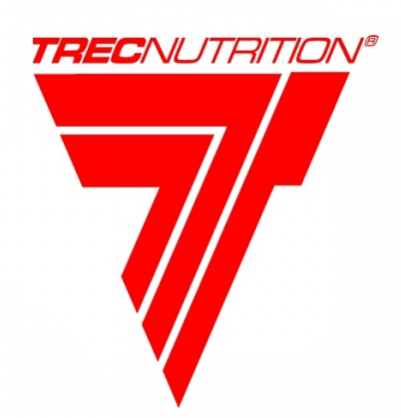
















 Rated Excellent by 26,523+ Reviews
Rated Excellent by 26,523+ Reviews